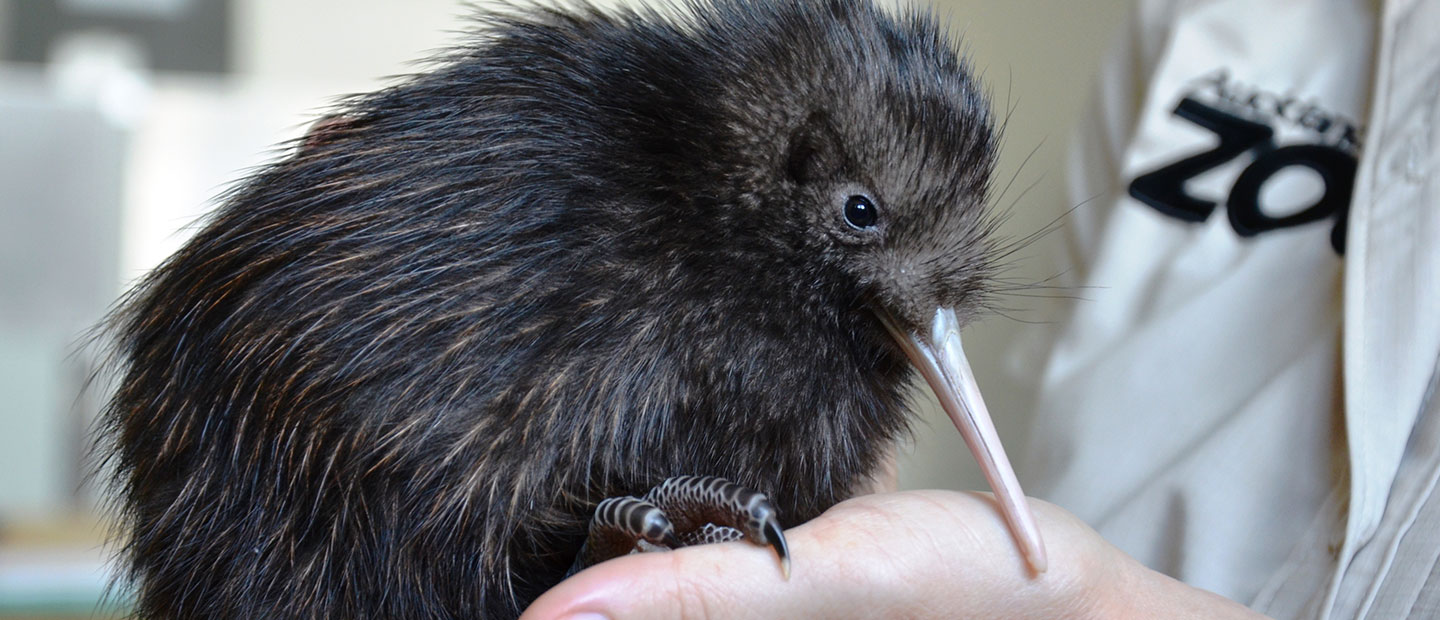Kiwi will soon be roaming Rotoroa Island in Auckland's Hauraki Gulf. Three kiwi chicks, hatched at Auckland Zoo from eggs collected from Te Mata in The Coromandel are today being released onto the 83ha isle, and more chicks are due for release in November.
The introduction of kiwi marks the start of a new programme between, Rotoroa Island Trust (RIT), Auckland Zoo and Thames Coast Kiwi Care (TCKC) that will help boost the population of Coromandel North Island brown kiwi - the rarest of the four distinct types of brown kiwi. Up to 20 chicks could be released onto Rotoroa each year. On reaching 1.2kg - large enough to have a chance against introduced predators on the mainland, the birds will be returned to the 2,500ha protected area on the Thames Coast cared for by TCKC. The programme is also providing a number of chicks for release onto Motutapu Island.
The kiwi arrivals during Save Kiwi Month follow the first translocations of wildlife (saddleback and whitehead) to Rotoroa in May as part of a 25-year plan by RIT and Auckland Zoo for this unique wildlife reserve that includes introducing up to 20 new species by 2018.
"It's wonderful to be celebrating this milestone of providing a place for our national bird to thrive," says RIT chairman, Barrie Brown.
"I’ve been looking forward to welcoming kiwi here since our partnership with the Zoo launched in 2012. A key part of this Rotoroa project is our schools programme - giving young Kiwi children practical opportunities to grow their love and ability to care for, wildlife and the environment. It feels appropriate that their feathered namesake is among species we'll manage here, and will play a part in inspiring these future conservationists," says Mr Brown.
Zoo director Jonathan Wilcken says partnering with TCKC to grow the population of this rare, genetically distinct kiwi highlights the value of sharing skills and resources.
"Thames Coast Kiwi Care plays a vital role in protecting kiwi in the Coromandel. RIT and the Zoo are here to help with this work by providing specialist wildlife management skills in incubating, rearing and releasing kiwi, along with an island safe-haven for young kiwi chicks. It's a great team effort and an example of the type of collaborative and interventionist approach that’s increasingly used to help save wildlife," says Mr Wilcken.
It's possible that fewer than 50 Coromandel brown kiwi remain in the land TCKC protects, out of a total Coromandel population of 1500.
“Our volunteer organisation has done a pretty good job of growing kiwi numbers here over the past eight years,” says TCKC chair, Richard Moyle. “We have 35 dedicated trappers as well as back-up trappers and small stocks of back-up equipment. What we haven’t had until now, is a back-up for the kiwi themselves! If they were ever to go, they’d be likely gone for good. This new partnership is fantastic and gives us the back-up we need, and we’re very proud to be one cog in this forward-moving wheel of kiwi conservation,” says Mr Moyle.
Iwi groups from the Tapu/Te Mata area of the Coromandel and Rotoroa Island have offered their support of the programme.


